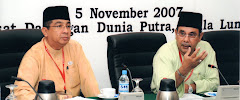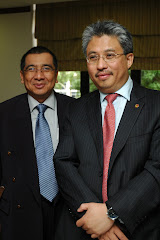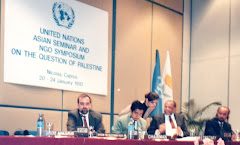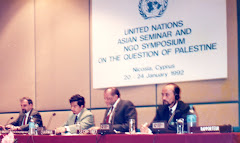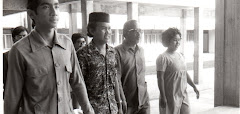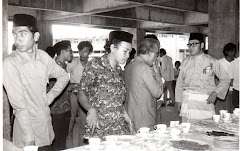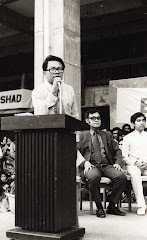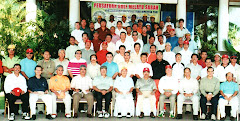EVERY few months, I take my son Omar to the neurologist, one of the many specialists that he goes to. While waiting for our turn, I always take note of the other patients, each one with different medical problems.
A neurologist is a doctor who is trained in epilepsy, movement disorders, dementia and other diseases, infections and tumours pertaining to the brain and the nervous system.
The more commonly encountered conditions include headaches, stroke, seizures, dementia, Parkinson’s disease, multiple sclerosis, head trauma, sleep disorders and a list of other neuromuscular diseases.When my son was seeing the doctor at the paediatric clinic, many of the patients were children disabled by epilepsy, autism and cerebral palsy. Now that he is seen at the adults’ clinic, it’s mainly stroke patients. Several of them had multiple incidents of stroke. Others were struck down by one major stroke that rendered them weak and disabled.
As I took in the sight and number of caregivers accompanying the patients, I remembered the alarming statistics of stroke occurring around the world as told to me by Fong Foong Meng, Finance, HR and Administration manager of the National Stroke Association of Malaysia.
Did you know that in every two seconds, someone somewhere in the world, regardless of age and gender would be stricken with stroke as reported by the World Stroke Organisation? It also reported that in every six seconds, someone somewhere, regardless of age and gender would die of stroke.
According to Nasam, stroke is the third leading cause of death in Malaysia after heart disease and cancer, with more than 50,000 new cases reported every year.
A typical stroke patient may have one side of the body paralysed or lose the ability to speak.
The scary thing about stroke is that it can affect anyone of any age.
Certain people, however, have a higher risk factor, namely those over 55, male, has a family history of stroke, hypertension (high blood pressure), smokers, diabetics, obese and overweight, and heart diseases, just to name a few.
My son, Omar, had a stroke of sorts while I was pregnant with him, unbeknown to either the doctors or me until he was born. When he started having intractable seizures just days after birth, a scan showed that he had a blood clot called an infarct in the brain. That blood clot caused his seizures, which stopped after an operation was done to remove it, forever taking away that portion of the brain that gave him speech.
What is a stroke? To put it in simple terms, a stroke is a condition where the brain cells suddenly die due to a lack of oxygen. This may be caused by an obstruction in the blood flow, or the rupture of an artery that feeds the brain.
The two main types of stroke are ischemic stroke and haemorrhagic stroke, both of which result in a lack of blood flow to the brain and build-up of blood that puts too much or pressure on the brain.
The outcome after a stroke depends on which part and how much of the brain is affected. Some people have smaller or silent strokes. These may not present any symptoms but can still damage brain tissue that result in weakness in the arm or leg. Larger strokes may lead to paralysis or death. Stroke can affect people physically, mentally and emotionally, or a combination of all three. But it’s not all bad news.
Fong said that is what Nasam is there for. It is a strong advocate of “There is life after stroke through proper rehabilitation”.
Its founder chairman, Janet Yeo, founded the NGO after her own remarkable recovery from stroke. She recognised the absolute necessity for an organisation that would offer a lifeline to stroke survivors.
“Most importantly, Janet wanted to give stroke survivors the opportunity to regain as normal a life as possible with the limits of their disability,” said Fong.
From the time Nasam was founded in 1996 in Petaling Jaya, specifically in Janet’s garage at home, it has grown to spread its wings to seven other centres all over the country — Ampang, Penang, Ipoh, Malacca, Johor Bahru, Kuantan and Kota Kinabalu. It has more than 400 stroke survivors who attend daily therapy sessions.
Strokes are medical emergencies and prompt treatment is essential because the sooner you receive treatment and medical attention, the less damage is likely to happen.
Here are the main symptoms of stroke to remember with the word FAST — Face-Arms-Speech-Time.
- Face: The face may have “dropped” on one side, the person may not be able to smile.
- Arms: The person suspected of stroke may not be able to lift one or both arms.
- Speech: Their speech may be slurred or garbled, or may not be able to talk at all despite appearing to be awake.
- Time: Get help immediately. Go to a hospital with a stroke unit within 4.5 hours if you encounter one or more of the above signs.
World Stroke Day is on Oct 29. Their message is: “Do not take chances. One in six people are at risk of a stroke; it could be you. Learn the facts. Save a life today. Act now!”
Read more: I, caregiver: Act now against stroke - Sunday Life & Times - New Straits Times http://www.nst.com.my/life-times/sunday-life-times/i-caregiver-act-now-against-stroke-1.385744#ixzz2izBeSa65






























